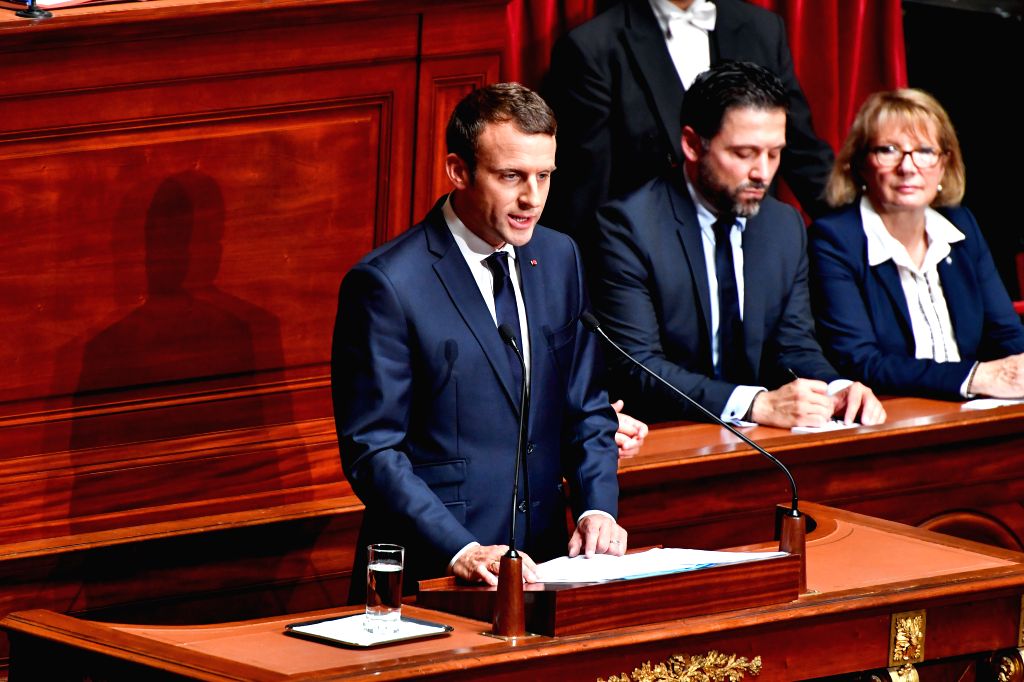France, long considered a pillar of European stability, has found itself plunged into political uncertainty once again. The unexpected resignation of Prime Minister Sébastien Lecornu has rocked the country’s political establishment, unnerved investors, and deepened the sense of volatility gripping Europe’s democracies. His departure, coming just weeks after taking office, has left President Emmanuel Macron scrambling to contain the fallout — both at home and abroad.
Lecornu’s resignation, described by one senior official as “a thunderclap in broad daylight,” is more than just another episode in France’s often turbulent politics. It is a reflection of the deeper fractures within the French government, the public’s growing frustration with austerity, and the rising tide of populism challenging traditional leadership across Europe.
As the Paris stock exchange slumped nearly two percent and the euro weakened, the question dominating headlines from Brussels to Berlin was simple yet unsettling: has France entered a new era of instability — and what does that mean for Europe’s future?
A Sudden Exit in a Time of Fragile Confidence
Sébastien Lecornu was never meant to be a caretaker. Appointed as prime minister after months of behind-the-scenes wrangling within the ruling coalition, he was chosen precisely because of his reputation as a loyal technocrat and a steady hand. His experience as defense minister had earned him Macron’s trust, and his appointment was intended to project continuity and control at a moment when public patience was wearing thin.
But that illusion unraveled almost immediately. Reports began surfacing of clashes between Lecornu and senior cabinet members over proposed budget cuts and reforms aimed at reducing France’s mounting deficit. The new administration, already facing widespread skepticism, struggled to convince citizens that yet another round of austerity would deliver economic relief.
Within weeks, tensions spilled into the open. Leaked memos hinted at fierce disagreements over the government’s plan to trim social spending while maintaining defense commitments tied to France’s role in NATO and European security. Protesters returned to the streets of Paris, Lyon, and Marseille, reviving chants that had echoed through the Yellow Vest movement years earlier: “We work, we pay, we bleed — and they decide.”
For many observers, Lecornu’s resignation was the inevitable conclusion of a government stretched thin between fiscal prudence and political survival. “He saw the writing on the wall,” said one former adviser. “He was asked to fix a system that refuses to change.”
Macron’s Tightrope: Power Without Popularity
For President Macron, Lecornu’s sudden departure marks yet another blow to his already fragile authority. Though constitutionally secure, Macron’s political base has been steadily eroding since his re-election. His centrist coalition, once celebrated as a bold experiment uniting left and right, now finds itself trapped between populist forces on both flanks — Marine Le Pen’s far-right National Rally on one side and the radical left under Jean-Luc Mélenchon on the other.
Macron’s challenge is existential. His vision of France as a modern, reform-driven European powerhouse depends on his ability to maintain control and project confidence. Yet the Lecornu episode underscores how precarious that control has become. Each new crisis — from the pension reform protests to cabinet reshuffles — chips away at his credibility.
In private, insiders describe an Élysée Palace increasingly isolated from the realities of public sentiment. Macron, known for his technocratic precision and sometimes aloof style, faces criticism for governing through decree and consultation with a shrinking circle of trusted aides. Lecornu’s exit, reportedly triggered by both policy disagreements and fatigue with the president’s top-down management style, has only reinforced that image.
Public frustration has reached a boiling point. Opinion polls show that fewer than one in three French citizens now express confidence in the government. Many view Macron’s administration as out of touch — a political elite preoccupied with budget numbers and European diplomacy while ordinary citizens struggle with rising living costs, energy bills, and stagnant wages.
Economic Shockwaves Across Europe
Markets wasted no time in reacting to Lecornu’s resignation. The CAC 40, France’s main stock index, tumbled 1.8% in a single day — its sharpest fall in months. The euro also weakened slightly against the dollar, as traders weighed the implications of a leadership vacuum in Europe’s second-largest economy.
The timing could not be worse. France is already navigating a delicate economic moment. Inflation, though cooling, remains stubbornly high. Growth forecasts are tepid, and the government’s fiscal discipline is under scrutiny from Brussels, where EU officials are pressing member states to rein in spending after years of pandemic stimulus.
Lecornu’s resignation, according to analysts, raises doubts about France’s ability to push through the structural reforms that international markets have long demanded. Investors fear that any successor may either delay budgetary tightening to appease domestic anger or pursue austerity so aggressively that it deepens social unrest. Either path risks further volatility.
Across the continent, the ripple effects were immediate. European markets dipped as uncertainty spread about the stability of one of the EU’s key political and economic anchors. The episode also reignited broader concerns about Europe’s leadership vacuum, as Germany struggles with its own coalition tensions and Italy contends with populist pressure at home.
The French government’s financial credibility has long been tied to Macron’s reform agenda — from pension restructuring to labor flexibility. Lecornu’s departure places all of that in question. Without a steady hand at Matignon, the government’s capacity to deliver those promises appears increasingly doubtful.
The Political Undercurrents: Austerity and Alienation
To understand why Lecornu’s resignation resonates so deeply, one must look beyond the mechanics of politics and into the mood of the French people. Beneath the headlines lies a simmering resentment — a feeling that the government’s economic vision serves global markets more than its own citizens.
France has endured years of reforms framed as “necessary modernization.” Pension age increases, labor deregulation, and reductions in welfare spending have all been justified in the name of competitiveness. Yet for many ordinary workers, the benefits remain invisible. Job insecurity has grown, purchasing power has eroded, and social inequality has widened.
The promise of Macronism — that technocratic efficiency would deliver prosperity — is now viewed with suspicion. Lecornu’s attempt to continue that formula through fiscal tightening only deepened the divide. His resignation is, in many ways, a symptom of a larger disease: the disconnect between the governing elite and the governed.
Populist movements, both left and right, have been quick to capitalize on that anger. Marine Le Pen framed the resignation as proof that Macron’s “European project” is collapsing under its own weight. Jean-Luc Mélenchon called it “a rebellion from within the palace itself,” a sign that the establishment can no longer manage the contradictions of its own policies.
Both narratives resonate with a weary public. Whether through the lens of nationalism or social justice, the conclusion is the same: France’s ruling class is losing touch with the people it claims to represent.
The Élysée’s Dilemma: Who Comes Next?
As President Macron huddles with advisers in search of a new prime minister, the choice carries extraordinary weight. Whoever steps into Matignon will face the impossible task of reconciling fiscal responsibility with political reality.
Names are already circulating in Paris. Some suggest a return to experience, perhaps a former minister known for pragmatism and public communication. Others advocate a bold choice — perhaps a younger or more left-leaning figure who could rebuild bridges with disillusioned voters. Yet every option comes with risks. Too moderate, and Macron risks alienating his right flank. Too progressive, and he invites rebellion from within his centrist alliance.
The process is further complicated by timing. France is approaching a critical budget season, and any delay in forming a government could paralyze decision-making. Meanwhile, international partners are watching closely. France’s role in European defense, its leadership in climate policy, and its influence within the EU all depend on a functioning government in Paris.
Inside the Élysée, aides are said to be weighing not only political skill but also loyalty — a reflection of Macron’s deepening mistrust after a string of departures and disputes. Lecornu’s resignation may have been sudden, but it follows a pattern of attrition that has come to define Macron’s second term.
A Mirror for Europe’s Wider Crisis
While the drama unfolding in Paris is uniquely French, its implications reach far beyond national borders. Across Europe, governments are grappling with similar pressures — inflation, stagnation, and the erosion of public faith in traditional parties.
In Germany, Chancellor Olaf Scholz faces an increasingly divided coalition and a surge in far-right support. In Italy, Giorgia Meloni walks a tightrope between nationalist rhetoric and EU fiscal discipline. In Britain, political instability remains a near-permanent feature of governance.
Lecornu’s downfall thus serves as both a warning and a reflection: the European center, once thought immovable, is under siege. The technocratic politics that defined the continent’s post-crisis era are losing legitimacy in the face of populist simplicity. Citizens are demanding clarity, conviction, and connection — qualities that bureaucratic governance often fails to deliver.
The European Union’s project, built on consensus and compromise, depends on the strength of its major members. A weakened France not only risks domestic disarray but also undermines Europe’s collective ability to respond to global challenges — from war in Ukraine to the green energy transition.
The Road Ahead: Crisis as a Catalyst
For all its turbulence, French politics has an uncanny ability to reinvent itself. Periods of chaos often give way to renewal, as new movements and leaders emerge from the ashes of disillusionment. The question is whether this moment will produce reinvention — or merely repetition.
Macron has built his career on defying political gravity. Twice he has faced near-certain defeat and emerged stronger. Yet this time feels different. The exhaustion is visible, the trust deficit deeper. Without Lecornu, he must not only rebuild his government but also reestablish the narrative of progress that first propelled him to power.
If he succeeds, France could emerge with a more inclusive vision of reform — one that balances fiscal realism with social compassion. If he fails, the consequences could be severe: political paralysis at home, diminished influence abroad, and a surge of populist energy that could reshape France’s next election.
For now, uncertainty reigns. The corridors of the Élysée buzz with speculation, the markets tremble with hesitation, and Europe watches with apprehension. A single resignation has exposed the fragility of an entire system — one where the promise of progress collides daily with the pressure of reality.
In the end, Lecornu’s departure may be remembered not just as a political scandal, but as a turning point — a moment when France, and perhaps Europe itself, was forced to confront the limits of its own confidence.

